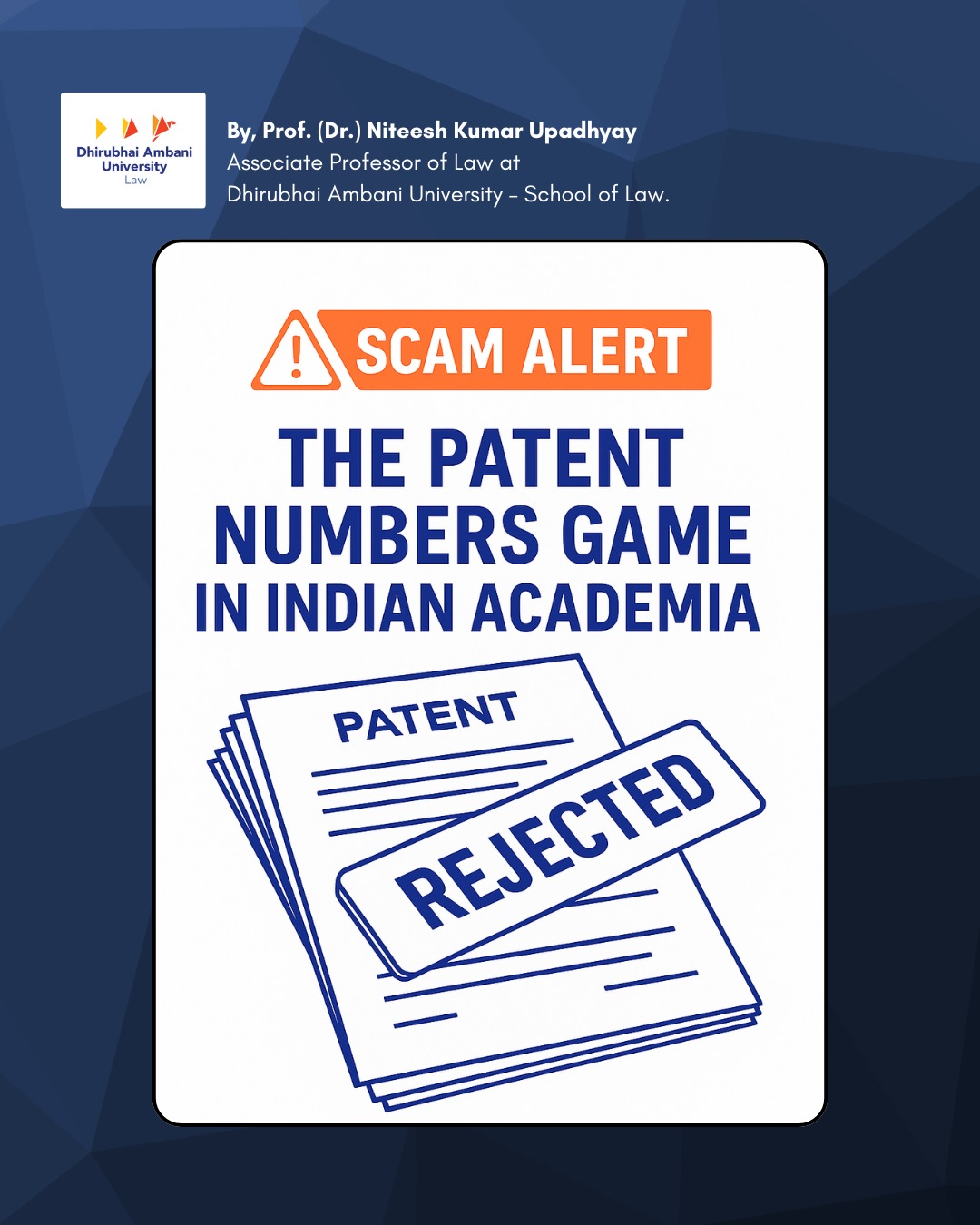
Let’s Talk Honestly About Patents in Indian Academia
The original purpose of a patent was to protect something truly novel—something with genuine industrial application and societal value. Unfortunately, in recent years, patents have increasingly become a numbers game rather than a reflection of innovation.
I recently came across a news report stating that four private Indian universities have filed more patents in a single calendar year than all the IITs combined. Something about this doesn’t add up. Read the report here.
This trend seems to be primarily driven by the pressure to boost scores in NAAC, NBA, and QS rankings, leading to a patent-filing spree—often without regard for industrial utility, novelty, or long-term impact. Shockingly, many universities equate patents filed with patents granted on their public profiles, misleading students into believing they’re entering hubs of high-impact research.
We must be clear: filing a patent is not the same as being granted one. Filing can be done for virtually anything by paying the required fees. But a granted patent requires rigorous examination of its novelty, utility, and industrial application. Sadly, some institutions are even pressuring faculty to file meaningless patents, and there are growing concerns about the rise of so-called “patent cartels” selling authorship slots for a price.
If universities are honestly conducting groundbreaking research, where are the real-world outcomes? Why aren’t we seeing these innovations solving problems or benefiting society at scale?
Many remain silent about this issue due to fear, institutional pressure, or personal consequences. I am fortunate to be associated with organisations that support academic freedom and encourage real research over hollow metrics.
The reality is alarming: some private universities claim to file over 1000+ patents annually. But what value do they add? Many have no practical application, no industry tie-ups, and no impact beyond a line on a CV or a ranking score. There are even law faculties being asked to file patents, which fundamentally misrepresents the purpose of patent law and academic integrity. I’m not suggesting that faculty members from law schools are incapable of innovation or contributing to patentable work. However, forcing them to file patents—especially as a mandatory requirement—is unethical and goes against the foundational values of legal education. Innovation should stem from genuine research and interdisciplinary collaboration, not institutional pressure or artificial targets.
One real, implementable patent can generate employment and solve real problems. Instead, we are chasing numbers, fake recognition, and promotions—sometimes at the cost of academic credibility.
To my fellow educators, researchers, and policy-makers:
Let’s return to meaningful work. Let’s promote innovation, not inflation of metrics.
Avoid fake patents. Do research that matters.
References
- news.careers360.com/four-private-universities-ahead-iit-lovely-professional-university-jain-galgotias-patents-application-intellectual-property-iisc
- edinbox.com/newsviews/news/576-private-universities-outpace-iits-in-patent-filings-for-2022-2023-academic-year-deets-inside
- news.careers360.com/lpu-leads-india-1418-patent-filings-surpassing-iits-nits-government-of-indias-annual-report
- the-captable.com/2025/05/research-paper-patent-black-market
- lislinks.ning.com/forum/topics/the-patent-for-sale-scheme-ensnaring-indian-academics-by-anirban
